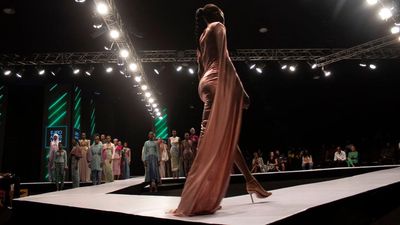Nigeria Moves to Ban Foreign Models in Advertisements
The ban aims to underscore Nigerian talent and bolster its advertising industry.
Nigeria is banning foreign advertisers and voice over artists from doing its advertisements. Nigeria is the first country to enact a law like this. The ban will become effective October 1, but pending projects that were ongoing with foreign talent before the announcement will be allowed to continue. The news was initially announced on August 23, when the Advertising Regulatory Council of Nigeria (ARCOND) announced the plan, noting that it was in line with government policies, which were seeking to grow the Nigerian advertising industry as a whole.
In a statement, the Director-General of ARCON, Dr. Olalekan Fadolaposaid:
“ARCON, being the apex advertising, advertisement and marketing communications’ regulatory agency of the Federal Government, has, in accordance with its statutory mandates, responsibilities and powers as conveyed by the Advertising Regulatory Council of Nigeria Act No. 23 of 2022, bans use of foreign models and voice-over artists on any advertisement targeted at the Nigerian advertising space with effect from October 1, 2022.”
In an interview with UK’s The Times Newspaper, Steve Babaeko, president of ARCON said that the new ban signified a sign of emerging national pride.
“Ten to 20 years ago if you checked the commercials, I would say they were almost 50-50 in terms of foreign faces and all the voiceovers were British accents,” Steve Babaeko said. “I think the law is just catching up with national sentiment. As long as maybe eight years ago you would notice some kind of renaissance in Nigeria.” He also pointed out that in the past, when Nigerians had projects in the pipeline that were shot abroad with foreign models, people were generally unhappy.
Babaeko went on to say that the move would strengthen Nigeria's advertising power, and he shared that Nigeria's presence in the advertising space is dominated by other African countries. The recent development has produced a polarizing effect on Nigerian social media users, with some people saying that it was a step in the right direction, and others stating that it would produce dire consequences down the line.
- How These 5 African Models Plan to Make 2022 Their Runway ... ›
- 8 Recent Times Luxury Fashion Brands Used African Designs ... ›
- Rebuilding the Nigerian Fashion Industry After Coronavirus ... ›
